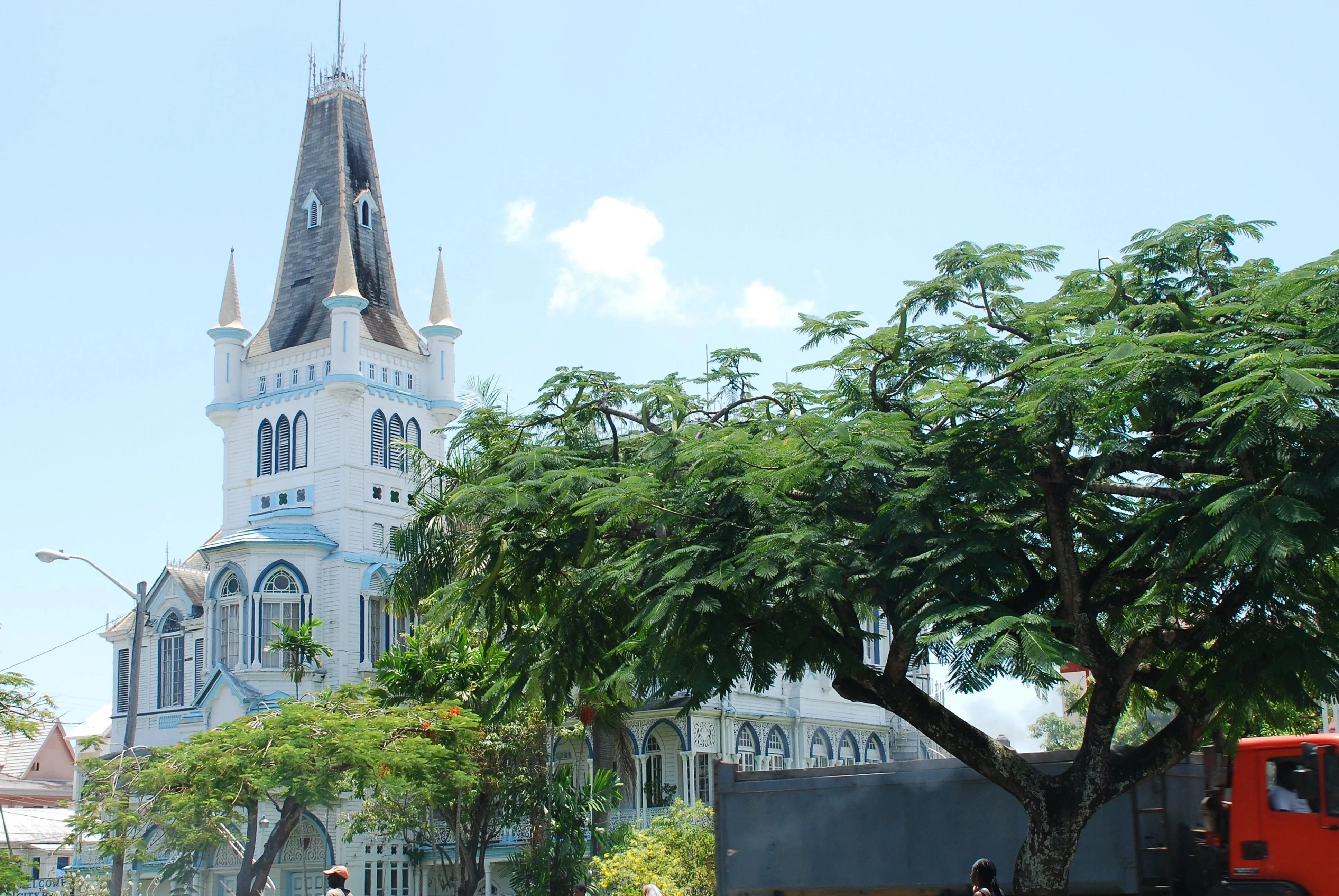1. Cost of Living. Rent: The cost of rent can vary depending on the location and type of accommodation. In urban areas like Georgetown, rents may be higher. Food: Grocery prices can be reasonable, especially if you shop at local markets. Dining out can also be affordable.
2. Healthcare: Healthcare services are available, but the quality may vary. Georgetown has hospitals and clinics offering medical care. It is advisable to have health insurance to cover medical expenses.
3. Transportation: Public transportation is available, and buses and minibusses are commonly used. Taxis are also available in urban areas.
4. Language: English is the official language, facilitating communication for English speakers.
The average monthly cost of living for a single person in Guyana might range from approximately $800 to $1,500 USD. This estimate includes expenses such as rent, utilities, groceries, transportation, healthcare, and other miscellaneous costs.
Pros:
- Cultural Diversity: Guyana is known for its rich cultural diversity, with influences from various ethnic groups.
- Natural Beauty: The country boasts diverse landscapes, including rainforests, savannahs, and rivers. The Kaieteur Falls, one of the world's largest single-drop waterfalls, is a major natural attraction.
- Affordable Living: In comparison to some other countries, the cost of living in Guyana can be more affordable, particularly in terms of housing and daily expenses.
- English Language: English is the official language, making it easier for expatriates to communicate and integrate into the local community.
Cons:
- Economic Challenges: Guyana faces economic challenges, and job opportunities, particularly in certain sectors, may be limited.
- Infrastructure Issues: Some areas may experience challenges with infrastructure, including road conditions and access to reliable public services.
- Security Concerns: Guyana has areas with higher crime rates.
- Healthcare System: The overall healthcare system faces challenges, and access to advanced medical services could be limited in more remote regions.
- Climate and Environmental Factors: Guyana's tropical climate may not be suitable for everyone, and residents should be prepared for high temperatures and periodic heavy rainfall.
1. Georgetown: As the capital and largest city, Georgetown is the economic and administrative center of Guyana. It offers urban amenities, cultural attractions, and a mix of residential and commercial areas.
2. Linden: Linden is another significant town in Guyana, known for its bauxite mining industry. It has a community feel and provides access to natural attractions such as the Demerara River.
3. New Amsterdam: Located in the Berbice region, New Amsterdam is one of the country's largest towns. It has historical significance and is an economic hub for the surrounding areas.
4. Bartica: Positioned at the confluence of the Essequibo, Mazaruni, and Cuyuni Rivers, Bartica is a town with a growing population. It serves as a gateway to interior regions.
- Job Opportunities:
If you are moving for employment, secure a job offer before arriving in Guyana. nderstanding the job market and having a clear employment plan can facilitate a smoother transition.
- Cultural Awareness:
Familiarize yourself with Guyanese culture, customs, and social norms. This cultural awareness will help you integrate more easily into the local community.
- Financial Planning:
Plan your finances accordingly. Understand the cost of living in Guyana, including accommodation, healthcare, education (if applicable), and daily expenses.
- Healthcare Considerations:
Ensure you have access to healthcare services.






